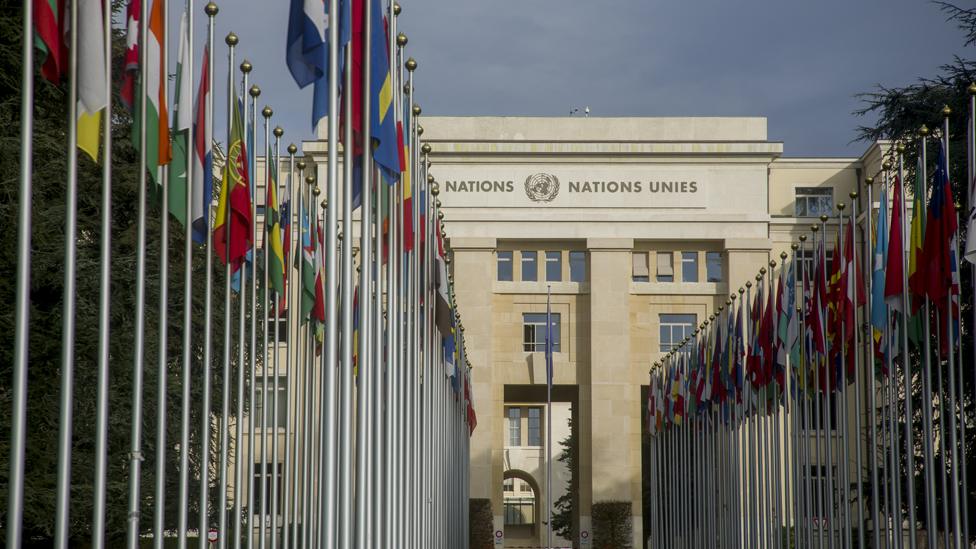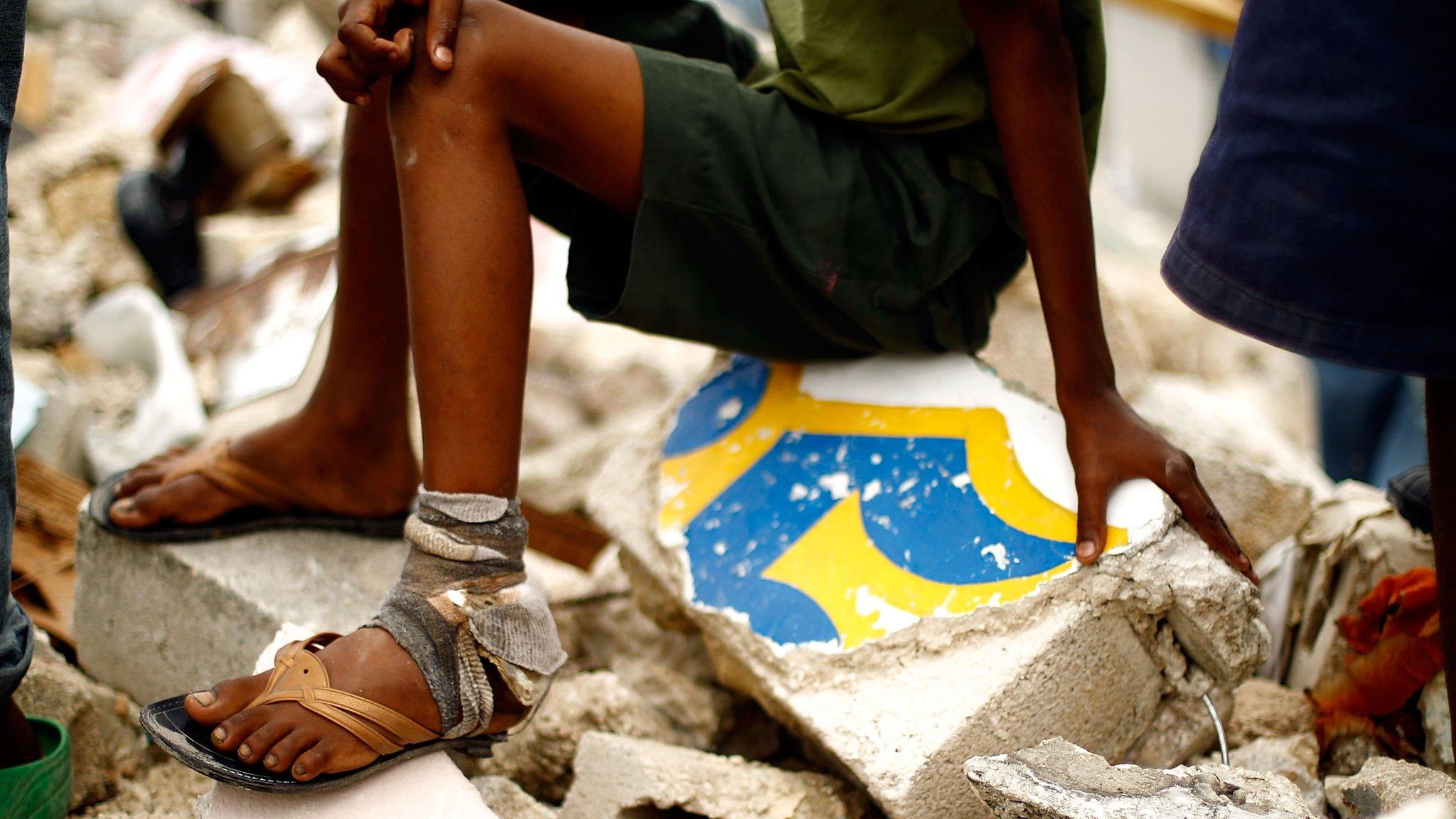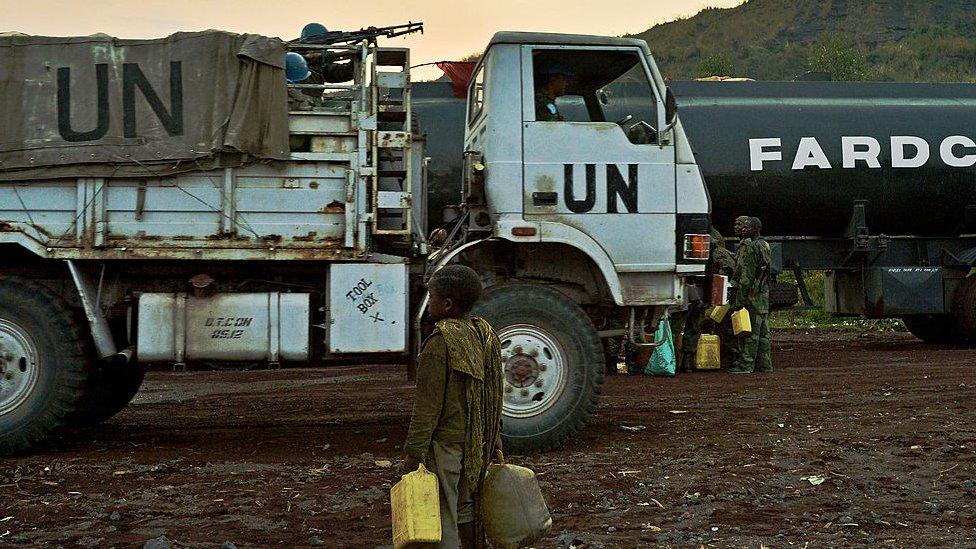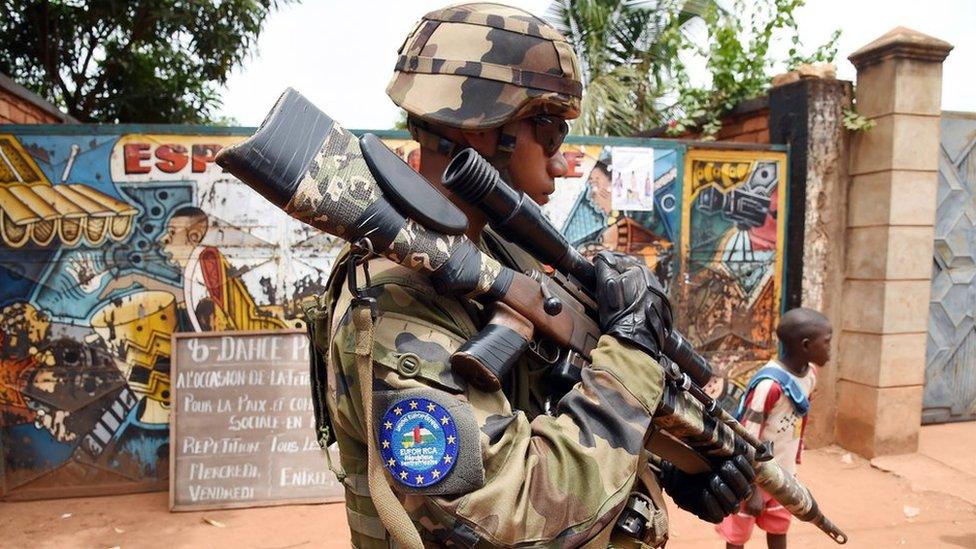United Nations: Survey finds third of workers sexually harassed
- Published

More than half of staff surveyed say the harassment took place in an office environment
One in three UN workers has been sexually harassed in the past two years, a UN report has revealed.
Just 30,364 staff and contractors completed the survey in November - 17% of the total number eligible to do so.
Secretary-General Antonio Guterres says the report, and the "moderately low" response rate, is a sign that they "still have a long way to go".
The report comes amid the global #MeToo movement against sexual harassment, abuse and assault.
Mr Guterres says the relatively low number of participants in the survey could be a sign of an "ongoing sense of mistrust, perceptions of inaction and lack of accountability" in the UN.
The survey contained "some sobering statistics", he added, as well as "evidence of what needs to change to make a harassment-free workplace real for all of us".
"As an organisation founded on equality, dignity and human rights, we must lead by example and set the standard," he said.
What does the report say?
According to the survey, which was carried out by Deloitte, more than half of those who experienced sexual harassment at the UN say it happened in an office environment, while another 17.1% say it took place at a work-related social event.
More than a fifth - 21.7% - say they were told inappropriate sexual stories or jokes.
Another 14.2% received offensive comments about their appearance, body or sexual activities, and 13% have had colleagues try to draw them into sexual discussions that have made them feel uncomfortable.
And 10.9% were subjected to sexual gestures or use of body language that offended or embarrassed them.
Around a tenth - 10.1% - of people who responded were touched inappropriately.
Two out of three harassers were male, the report says. Only one in three workers who experienced sexual harassment took action afterwards.
The report comes as the head of the UN agency for HIV and Aids gets ready to step down in June, six months before the end of his term, over claims of bullying.
An independent panel found that his "defective leadership" had tolerated "a culture of harassment, including sexual harassment, bullying, and abuse of power".
The UN has also been hit with a string of sex abuse allegations in the last few years, mainly levelled against their peacekeeping missions in African countries.
In 2017, a peacekeeper in the Democratic Republic of Congo was suspended following claims he fathered a child with an underage girl. He was one of five peacekeepers accused of sex abuse and exploitation in the first three months of that year.
And a year earlier, in 2016, more than 100 UN peacekeepers were sent home from the Central African Republic after an investigation into sex abuse claims.
In response, the UN has tried to increase transparency and strengthen the way it deals with allegations - for example, by adopting a policy of 'naming and shaming' countries where workers are accused of abuse.
- Published15 February 2018

- Published28 April 2017

- Published4 March 2016
